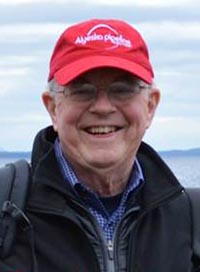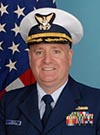
President of Alyeska Pipeline Service Company
I appreciate the opportunity to share with you some of Alyeska Pipeline Service Company’s perspectives as we continue work to keep the Trans-Alaska Pipeline System, or TAPS, economically and technically durable for Alaska’s future, able to safely transport oil that remains a foundation of Alaska’s economy. One major investment we’re making for the future is substantially upgrading the fleet that supports tanker movements and emergency response for Prince William Sound. As transition to our new marine services contractor continues, momentum is building – six modern tugs and barges have already launched, and two tugs completed sea trials in January. We will all see significant activity this spring as vessels and crews begin arriving in the Sound.
